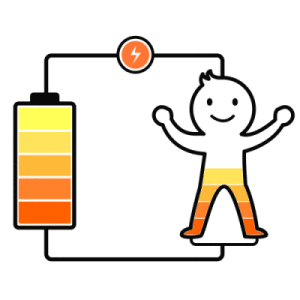Archives
Stay up-to-date and on top of your health with our e-Newsletter and receive updates on current treatments and vital health issues.
Feeling Like Your Battery is Running Low? Maybe an Iron Recharge is Needed.

“It’s very satisfying to see how rapidly people improve following an iron infusion, namely a dramatic increase in energy and a sense of well-being, allowing them to get on with their busy lives again.” – Dr Julie Cohen
If you’re feeling physically or mentally fatigued or finding your concentration to be waning, it’s possible your iron levels are too low. Iron deficiency can also be associated with a pale appearance, headaches, and hair loss.
Iron deficiency is a common condition in Australia affecting close to 1 in 6 women, with many men also affected. It is the most common nutrient deficiency in the world.
“So why is iron so important for health?”
– Iron is an essential nutrient needed for both mental and physical health
– Iron helps maintain energy levels.
– Iron forms part of the red pigment in red blood cells, known as haemoglobin. This pigment is responsible for transporting and delivering oxygen around the body.
– Iron is needed to maintain a healthy immune system, so as to combat infections.
“What happens if I don’t have enough Iron?”
Over time, a lack of iron can lead to iron deficiency anaemia. This is a condition whereby the body produces fewer healthy red blood cells. One of the main reasons for feeling fatigued or exhausted is because your blood is less able to transport oxygen around to the vital organs such as the heart and brain. If left untreated, iron deficiency can significantly affect your quality of life in terms of vitality, concentration and appearance. If severe, it can lead to serious long-term health consequences such as palpitations, dizziness, fainting and even heart failure.
“What causes iron deficiency?”
The first step in assessing someone who has been identified as iron deficient, is to assess and determine the cause. It can be due to:
– Insufficient consumption of iron-rich food in one’s diet such as red meat, and green leafy vegetables;
– Inadequate absorption of iron from food;
– An overt ( eg heavy periods) or inconspicuous source of gradual blood loss from the body.
“How is the deficiency treated?”
As well as determining the cause of the deficiency, it is equally important to replenish iron stores. This can be achieved in a number of ways:
– oral supplements in tablet or liquid form taken daily for several months;
– a series of injections of iron over a number of weeks;
– an instant top-up with an intravenous iron infusion.
“What is an iron infusion?”
An iron infusion involves receiving a concentrated dose of a liquid iron, which is drawn up into a syringe and slowly but painlessly injected directly into a vein through a drip over a 30 minute period. This procedure is now available at Airlie Women’s Clinic. It is overall very well tolerated with rare reports of side effects such as dizziness, headache, discoloration of the skin over the infusion site, muscle/joint pain, high/low blood pressure, facial flushing, or tummy upset. Anaphylaxis, a severe allergic reaction, is an extremely rare complication, but for this reason, patients are carefully monitored by our nursing staff during and following their infusion. A repeat iron test is performed 6 weeks later to determine if the iron stores have normalised.
If you are feeling in need of a recharge, and concerned that you may be suffering from iron deficiency or anaemia, make an appointment to speak with your doctor.